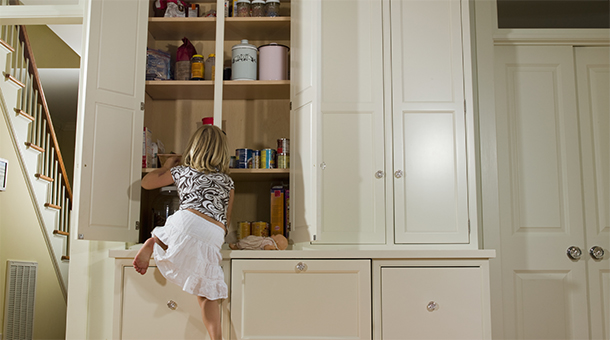The Medical Minute: Nicotine poisoning can prove fatal in children

The Food and Drug Administration recently announced it intends to require warning labels and child-resistant packaging on liquid nicotine products such as those used in e-cigarettes.
The Centers for Disease Control and Prevention said the popularity of e-cigarettes has resulted in a number of cases of nicotine poisoning in recent years.
Jonathan Foulds, professor of public health sciences at Penn State College of Medicine, says nicotine poisoning is not a new problem.
“There is a long history of very young children getting a hold of their parents’ tobacco,” he says. “The most common scenario is that a toddler consumes something, and the parents don’t know how much. Then they call the poison control center or end up in the emergency room.”
In the best case that leads to anxiety, and possibly unpleasant investigations for the families, and in the worst case it could lead to loss of consciousness or death for the child, Foulds says.
He adds any substance that could be harmful to children should come in a childproof container. “There are hundreds of cases of poisoning from cigarettes every year, and so all nicotine products, including cigarettes, should be in childproof packages.”
Nicotine replacement lozenges and other novelty smokeless tobacco products that resemble candy can also be dangerous.
The liquid used in e-cigarettes is often flavored – anything from strawberry to cookies 'n' cream – and may therefore smell appealing to children who come across it.
“All nicotine is a poison as are all tobacco products containing nicotine, so people using any of them should take great care to keep them out of reach of kids,” Foulds says.
A nicotine overdose usually makes a person sweaty, clammy, dizzy and nauseous. It proceeds to vomiting and loss of consciousness. It can also lead to death.
Luckily for most children, nicotine doesn’t taste good, so most do not continue to consume it once they have had a taste. But with the highly concentrated liquid nicotine, a child who drinks even a small amount could end up with a lethal dose.
Foulds says the proposed measures alone won’t solve the problem. He adds consumers need to be vigilant about using provided childproofing measures and making sure that any substances that could be harmful to children stay out of reach: “Simply put, nicotine is a poison and consumers need to take responsibility for keeping it away from children, whether it is in a childproof container or not.”
Learn more:
The Medical Minute is a weekly health news feature produced by Penn State Milton S. Hershey Medical Center. Articles feature the expertise of Penn State Hershey faculty physicians and staff, and are designed to offer timely, relevant health information of interest to a broad audience.
If you're having trouble accessing this content, or would like it in another format, please email Penn State Health Marketing & Communications.
